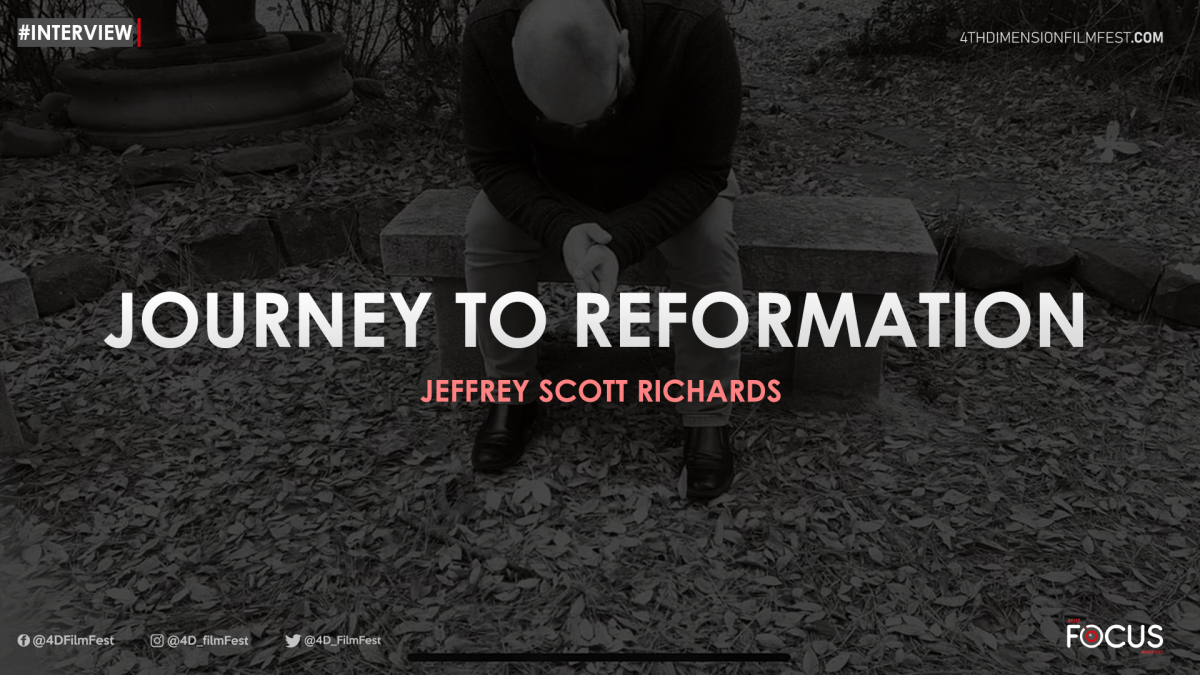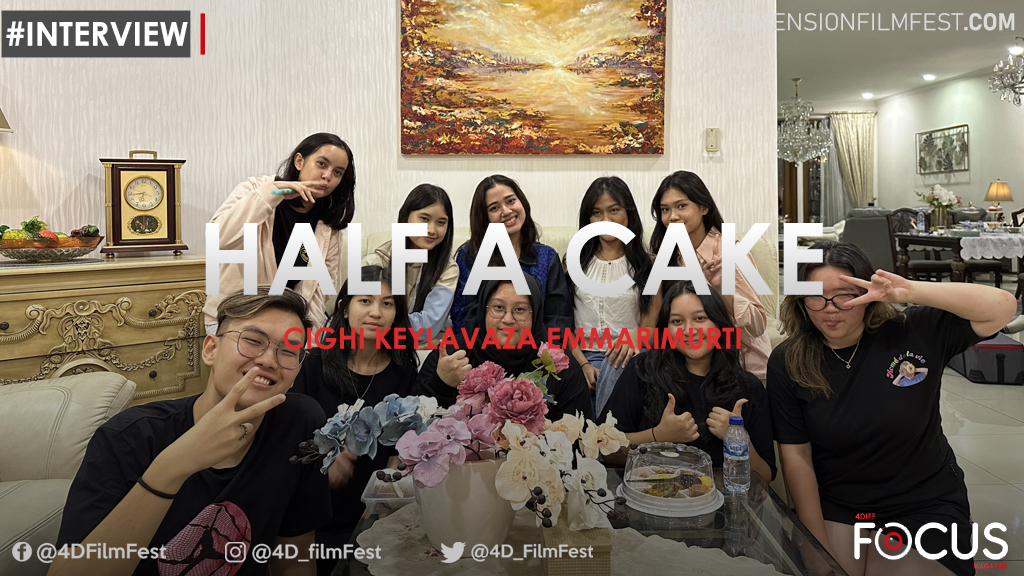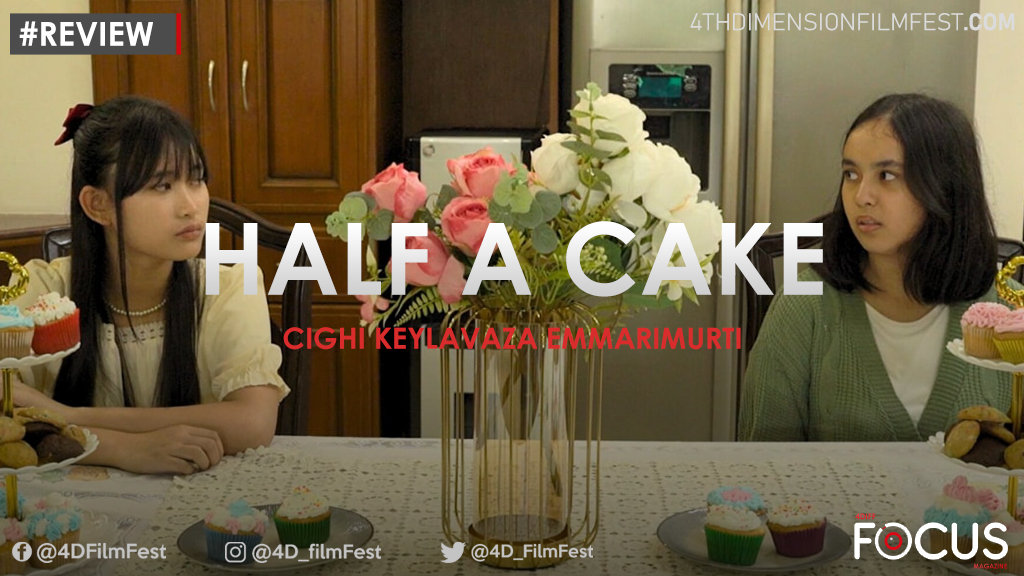First of all sir, could you tell us something about yourself, your love for stories and movies?
I grew up watching films that no kid had any business watching. My wife makes fun of me because she grew up on Disney, as any kid should. I grew up on Woody Allen or watching “The World According to Garp.” Even worse, I loved Troma films as a kid. In the US, we had “USA Up All Night.” My parents let me have a TV in my room at a young age and it became my friend. I was deathly sick as a kid and I couldn’t go out. I could watch TV and “USA Up All Night” has these “trash movies” that became my friend. Last thing, and my Mom (who passed her writing genes to me) will probably want to take all the credit for filmmaking but (forgive me, Mom) it was Dad. We communicated through our love of cinema. He is the one who let me watch whatever I wanted. I almost lost him last year due to COVID and that is the reason I got back into filmmaking after a 6 year hiatus. I am not letting what made me and my Dad’s relationship work die out.
How were you initially introduced to the domain of cinema? What enticed you the most about this medium?
I answered this (laughing), Dad. Cinema can lead to all kinds of emotions. I don’t mean this to sound bad, but you can manipulate someone’s emotions with the way a film is put together. I also feel that you can learn a lot about the screenwriter and a director’s personal life from the kind of projects they take on.
Can you suggest to us a few of your favorite movies? Like your top 5 film recommendations.
Post “me-too” it’s controversial to say but Annie Hall is still my favorite film despite Woody Allen’s personal life. Allen’s directing style is a huge influence on my work. I will give you four other films that you will see glimpses of in all my films.
- The Toxic Avenger (Best trash cinema film of all time)
- Limelight (the Charlie Chaplin directed film)
- Akira (Best Anime of all time)
- Blues Harp (Takashi Miike is versatile and he inspired me to do the same)
You suggested in the movie that you made movies about broken people. That there was something universal about being broken, in a state of agony. Would you like to say something on this?
I am such a mess. I have been married twice. I have two kids that live in West Virginia, I live in Texas, and my relationship with at least my 14 year old daughter is strained. I am a mess and if I can show people that on screen then I can help other people who are a mess. Isn’t that what this is about, helping to lift other people up?
You talked about a certain ‘American’ attitude that has popularised atheism to the extent of creating a cesspool of uni-dimensional narratives. Would you like to say something about this? Perhaps about the effects of reading just a Richard Dawkins or Sam Harris book.
You know what led to the “Age of Enlightenment?” The perceived notion that Christianity was causing more harm than good. What has happened in the last 20 to 30 years? Prosperity Gospel. The Westboro Baptist Church with their homophobia and picketing funerals. Bible Belt pastors being in the pocket of politicians or vice versa. That gave rise to the “New Atheist Movement.” You know why I am Anglican now? Because our driving force in the community was buying houses for the homeless. Like doing something to actually enrich and minister through our actions in the community. Engaging the “New Atheists” by listening to their voice and saying “we may not agree on Worldviews but I understand your anger.”
In the last scene in Robert Bresson’s ‘Dairy of a country priest,’ the priest confesses in his last letter that ‘Everything is Grace’. How can we define Grace and what would be its importance in one’s life?
Grace for me has always been getting something I didn’t deserve. I am a screw up. I am a terrible dad to my 14 year old daughter and I can be a terrible husband. The gist of the Gospel is God said “That’s a lot of burdens you are carrying Jeffrey. I will take those on through the work of Jesus on the cross. You just be chill and let me do the work.” I don’t deserve that. So I want it make it my life’s work to show the same love to every human I come in contact with. My son wears a shirt that says “Boys will be Good Humans.” That sums up my personal ministry. Well, not just boys, everyone should be a good human. I am just a boy so that’s why I relate to that shirt- except it’s too small for me to wear.
How important do you think the stories in the Bible are for everyone to read, comprehend and implement in their lives? Do you think the stories of Lazarus, Jonah, and Job are potent tales that could motivate individuals in despair?
THAT is the problem. I have never looked at the Bible as a collection of stories. I think that is how you get out of context interpretations used by people of all different worldviews (including Christianity). The Bible has always been holistic to me.
- God creates everything in perfect order and lives in perfect harmony with humankind
- Humans are like forget that noise, I don’t care that you gave me everything, I will do what I want
- We separate from God but he still pursues us- we still do what we want
- God comes to us in the form of the Son- meets us where we are at
- God puts a plan in motion to restore creation
Every word, every sentence points to that overall narrative. It is like watching one scene of the movie Memento. You are not going to know what is going on. You have to look at the whole narrative.
Do you think faith strengthens in times of trouble? Do you believe tragedy intensifies one’s belief to an extreme end? To use a popular reference, the invincibility of Moby Dick made captain Ahab more confident about catching and killing it.
Paul’s thorn was always an inspiration to me. He found pleasure in his pain because it pointed to Christ. I am the same way. I thrive in chaos because it makes me more humble. It shows me that I don’t have to carry the burden alone.
In this day and age, where do you see faith going towards? It is still an abode of solace for many and for some it is an excuse. What is the significance of faith today?
I think the reason secular people largely ignore Alister McGrath is because he embraces science and his faith. He makes so much sense that it is easier to go after an extremist in the faith. McGrath actually did a great debate with Dawkins that you never hear about. Dr. McGrath and Dr. Tim Keller will inspire a movement to look at apologetics differently. I think that is the future of the faith, engaging people through apologetics. That is my personal ministry actually.
Sir, what would you like to say about this long journey of yours? How easy or difficult was the path for you, full of epiphanies and moments of disillusionment?
Ha! (Laughs) It’s in the film. I think the more I serve, the more I engage with the homeless and people in our community that need help the less I concern myself with my disillusionment. I live out this worldview the way I believe in my heart it should be expressed. Everything else falls into place from there.




